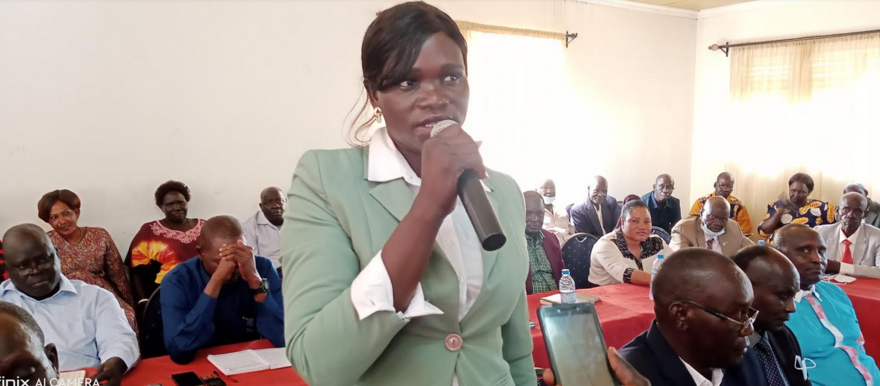The Eastern Equatoria State caucus in the Transitional National Legislative Assembly (TNLA) has rejected the IGAD protocol on transhumance and described it as an avenue for invasion and occupation of land.
On 17 June, the South Sudan government ratified two Intergovernmental Authority on Development (IGAD) protocols on transhumance and movement of people to regulate the movement of cattle and people in the eight-country trade bloc. The protocols which all member countries are expected to sign aim to allow movement across the borders and domestically.
In a letter seen by Radio Tamzuj, the lawmakers from Eastern Equatoria said they were aware of the current and continuous conflict between pastoralists and crop farmers in the state and that they were convinced that the ill conduct of well-armed pastoralists cannot promote peace and peaceful coexistence amongst communities.
Speaking to the media in Torit, members of the Eastern Equatoria State TNLA caucus represented by Ichaa Joyce Adelio, said the communities in the state will not hold any dialogue with armed and violent pastoralists whose intention is to occupy their land.
“They (pastoralists) are only looking for ways to legalize their plans. Similarly, the transhumance movements could also be misused as a strategy for causing insecurity and extending boundaries deep into South Sudan,” she said.
“You are reminded that IGAD is for us, not us for IGAD. There should be no dictation of terms on us on what the community objects to. The timing of this protocol for the implementation and domestication is not right in South Sudan and is highly suspect,” Adelio read, “This is because there are no laws to guide the domestication process. South Sudan has no national laws governing cattle and herders’ movements.”
According to the Eastern Equatoria legislators, IGAD should be aware of the land encroachment from Uganda and Kenya that is affecting and distorting the international boundaries of South Sudan.
“Others should not use transhumance and pastoral movements as a cover to claim more territories from South Sudan. The AU processes of border delimitation and verification must be conducted first before implementation of the transhumance corridor,” the statement said.
“It will be very difficult for the people of South Sudan to accommodate and regulate trans-pastoralist movements thus this will lead to an imbalance if not exploitation of south Sudanese people by people with well-organized legal systems,” Adelio read. “It should begin with a pilot project in the already developed and stable country, not South Sudan.”
The chairperson of the Civil Society Network in the state, Charles Onen Lokwaruk, said the protocol on transhumance has brought about a lot of concerns following the recent conflict between pastoralists and crop farmers in parts of the state.
“We have seen what has happened and if we want to think that this is the right time to bring this protocol and domesticate it to our level of the state, it is going to be difficult and it might not work,” he said. “My advice is that this is not the right time to implement it and we should stay it and wait for the right time.”




